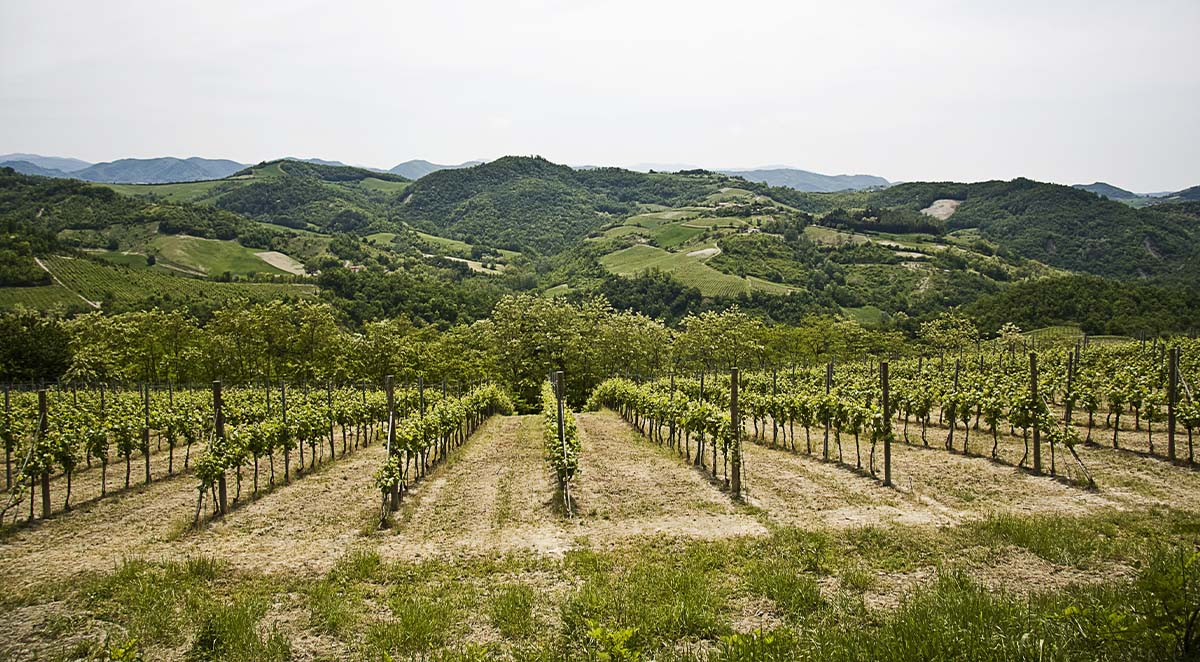Understanding Terroir: More Than Just Soil
What Is Terroir?
Terroir is a French term that has no direct translation in English but broadly refers to the complete natural environment in which a particular wine is produced. This includes the soil, topography, climate, and even the local flora and fauna.
However, in the context of this discussion, we will focus primarily on the soil, which plays a critical role in determining the flavor profile of a wine.
The Role of Soil in Terroir
Soil composition can vary significantly even within a single vineyard, leading to a diversity of flavors in wines produced from grapes grown just meters apart. The minerals present in the soil, its drainage capacity and its ability to retain heat all contribute to the growth of the grapevine and, ultimately, the characteristics of the wine.
Soil Types and Their Influence on Wine Flavor
1. Limestone Soils
Limestone-rich soils are highly valued in viticulture for their ability to produce wines with high acidity and a pronounced minerality. These soils are often found in some of the most famous wine regions, such as Burgundy and Champagne in France.
Characteristics of Wines from Limestone Soils:
- High acidity
- Pronounced minerality
- Elegance and finesse
- Long aging potential
Notable Regions:
- Burgundy, France
- Champagne, France
- Chianti, Italy
2. Clay Soils
Clay soils are dense and retain water well, which can be both a benefit and a challenge for grapevines. Wines from clay soils tend to have more structure and body, with bold flavors and rich textures.
Characteristics of Wines from Clay Soils:
- Full-bodied
- Rich texture
- Deep color
- Robust tannins
Notable Regions:
- Pomerol, France
- Rioja, Spain
- Tuscany, Italy
3. Sandy Soils
Sandy soils are known for producing wines with bright, fruit-forward flavors and soft tannins. These soils drain well and tend to be warmer, which can lead to earlier ripening of grapes.
Characteristics of Wines from Sandy Soils:
- Light-bodied
- Delicate flavors
- Soft tannins
- Aromatic
Notable Regions:
- Barossa Valley, Australia
- Santa Barbara, California
- Stellenbosch, South Africa
4. Volcanic Soils
Volcanic soils, rich in minerals and often with good drainage, contribute to the production of wines with unique flavors and intense minerality. These wines are often described as having an earthy or smoky quality.
Characteristics of Wines from Volcanic Soils:
- Intense minerality
- Earthy or smoky notes
- Complex flavors
- High acidity
Notable Regions:
- Etna, Italy
- Santorini, Greece
- Canary Islands, Spain
5. Gravel Soils
Gravel soils, particularly those in Bordeaux’s famous Left Bank, are known for producing powerful, structured wines. The gravel helps with drainage and reflects heat, aiding in the ripening process.
Characteristics of Wines from Gravel Soils:
- Structured and powerful
- High tannins
- Long aging potential
- Concentrated fruit flavors
Notable Regions:
- Bordeaux, France
- Médoc, France
- Graves, France
6. Loam Soils
Loam soils are a balanced mixture of sand, silt, and clay, offering moderate water retention and excellent fertility. Wines produced from loam soils can vary widely in flavor and body, depending on the specific blend of soil components and the climate in which the grapes are grown.
Characteristics of Wines from Loam Soils:
- Balanced acidity
- Moderate body
- Versatile flavor profile
- Soft tannins
Notable Regions:
- Napa Valley, California
- Tuscany, Italy
- Loire Valley, France
How Soil Impacts Grape Quality and Wine Character
1. Nutrient Availability
Soil provides essential nutrients to the grapevines, influencing the health of the vines and the quality of the grapes they produce. The type and amount of nutrients available can affect the size of the grapes, the thickness of their skins, and the balance of sugars and acids within them—all of which are crucial to the flavor and structure of the wine.
2. Drainage and Water Retention
The ability of soil to drain water or retain it has a significant impact on vine growth. Well-drained soils, such as those with high gravel content, prevent waterlogging and encourage deep root growth. This, in turn, helps vines access a wider range of minerals and nutrients.
Conversely, soils with poor drainage can lead to overly vigorous vines, which may produce grapes with diluted flavors.
3. Heat Retention
Soils that retain heat, such as gravel or volcanic soils, can help grapes ripen more fully by extending the warmth into the evening and night. This can be particularly beneficial in cooler climates, where heat retention can mean the difference between ripe, flavorful grapes and those that struggle to mature.
4. Soil Structure and Root Development
The structure of the soil, including its texture and porosity, directly impacts how roots develop and spread. Soils with a loose structure allow roots to penetrate deeper, accessing water and nutrients that may not be available near the surface. This deep root development can result in grapes with more complex flavors, as the vines draw from a broader spectrum of soil minerals.
5. Soil pH and Its Effects on Wine
The pH level of the soil can influence the acidity of the grapes, which in turn affects the balance and freshness of the wine. Soils with a higher pH tend to produce grapes with lower acidity, leading to wines that are softer and rounder. Conversely, soils with a lower pH produce more acidic grapes, resulting in wines that are crisp and vibrant.
The Science Behind Soil and Wine Flavor
1. Soil Composition and Grape Metabolism
The specific mineral composition of soil can affect how grapevines metabolize nutrients, which in turn influences the chemical composition of the grapes. For example, soils rich in potassium may enhance the fruity aromas in wine, while those high in calcium can contribute to the wine’s acidity.
2. Microbial Life in Soil
The microbial ecosystem in the soil also plays a crucial role in terroir. Microbes interact with the grapevines’ roots, aiding in nutrient absorption and protecting against diseases. The diversity of microbial life can influence the vine’s health and, ultimately, the flavor complexity of the wine.
3. Water Availability and Grape Concentration
The availability of water in the soil, influenced by its drainage and retention properties, plays a crucial role in determining the concentration of sugars and flavors in the grapes. In regions with limited water availability, grapevines often produce smaller, more concentrated berries, leading to wines with intense flavors and higher alcohol content.
Conversely, in regions with abundant water, the grapes may be larger and less concentrated, resulting in lighter, more refreshing wines.
Famous Wine Regions and Their Terroir
1. Burgundy, France: The Pinnacle of Terroir Expression
Burgundy is often cited as the epitome of terroir expression, with its wines reflecting the subtle differences in soil composition from one vineyard to the next. The region’s limestone-rich soils contribute to the high acidity and minerality of its renowned Pinot Noir and Chardonnay wines.
2. Bordeaux, France: Gravel’s Influence on Power and Structure
In Bordeaux, particularly on the Left Bank, gravel soils dominate. These soils, combined with the region’s maritime climate, produce some of the world’s most structured and long-lived wines. The Cabernet Sauvignon grape thrives here, producing wines with deep color, firm tannins, and a complex array of flavors.
3. Napa Valley, California: A Diverse Terroir Palette
Napa Valley’s diverse soils, ranging from volcanic to alluvial, allow for a wide variety of wine styles. The valley’s rich volcanic soils contribute to the bold flavors and robust structures of its famous Cabernet Sauvignon wines, while sandy and clay soils in other parts of the valley yield more delicate and aromatic wines.
4. Rhone Valley, France: A Blend of Soils for Complex Wines
The Rhone Valley in France is known for its diverse soils, including granite, limestone, and clay, which contribute to the complexity of its wines. The Northern Rhone, with its steep slopes and granite soils, produces powerful, structured wines, while the Southern Rhone, with its mix of clay and limestone, offers wines with rich, spicy flavors and softer tannins.
The Importance of Terroir in Modern Winemaking
1. Terroir as a Marketing Tool
In today’s wine market, terroir has become a powerful marketing tool. Consumers are increasingly interested in the origins of their wine and how the environment influences its flavor. Winemakers and wineries often highlight the unique terroir of their vineyards as a selling point, emphasizing the distinct characteristics that set their wines apart from others.
2. The Debate: Terroir vs. Winemaking
While terroir plays a significant role in shaping the flavor of wine, the winemaking process itself cannot be overlooked. The choices made by winemakers—from fermentation techniques to aging—also heavily influence the final product.
The debate over whether terroir or winemaking has a greater impact on wine quality continues, but most agree that both are essential to creating a truly exceptional wine.
3. Sustainability and Terroir
The relationship between terroir and sustainable practices is gaining attention as the wine industry becomes more focused on sustainability.
Organic and biodynamic farming methods are often seen as ways to enhance the expression of terroir, as they promote healthy soils and biodiversity. Winemakers who prioritize sustainability believe that by working in harmony with the environment, they can produce wines that are a true reflection of their terroir.
How to Experience Terroir in Wine
To truly appreciate the influence of soil on wine, it’s important to engage in comparative tastings. By tasting wines from different regions or even different vineyards within the same region, you can begin to discern the subtle differences that terroir imparts.
At Metro Wines, our wine school offers an immersive and educational experience to help you recognize and appreciate the influence of terroir on wine. You will learn to discern the impact of soil composition, climate, and topography on the flavor profiles of different wines.
Our instructors will guide you through tastings of wines from various regions, allowing you to identify distinct terroir characteristics and understand how they contribute to the overall sensory experience.
Whether you're a novice or a seasoned enthusiast, our wine school provides a comprehensive foundation for appreciating the nuanced relationship between terroir and wine, enhancing your ability to select and savor exceptional wines with an informed palate.
Discover the Terroir at Metro Wines
The intricate relationship between soil and wine flavor is a testament to the complexity and beauty of viticulture. By understanding terroir, wine enthusiasts can deepen their appreciation for the subtle differences that make each bottle unique.
If you want to learn more about how soil and terroir influence the wines you love, visit us at Metro Wines in Asheville. Our knowledgeable staff is eager to guide you through the world of wine, offering insights and education to enhance your wine experience.
Explore our selection and discover how the terroir of each bottle shapes its flavor, making each sip a journey of its own. Visit us at Metro Wines in Asheville to expand your wine knowledge and palate today. Contact us for more information about our wine and wine school.


